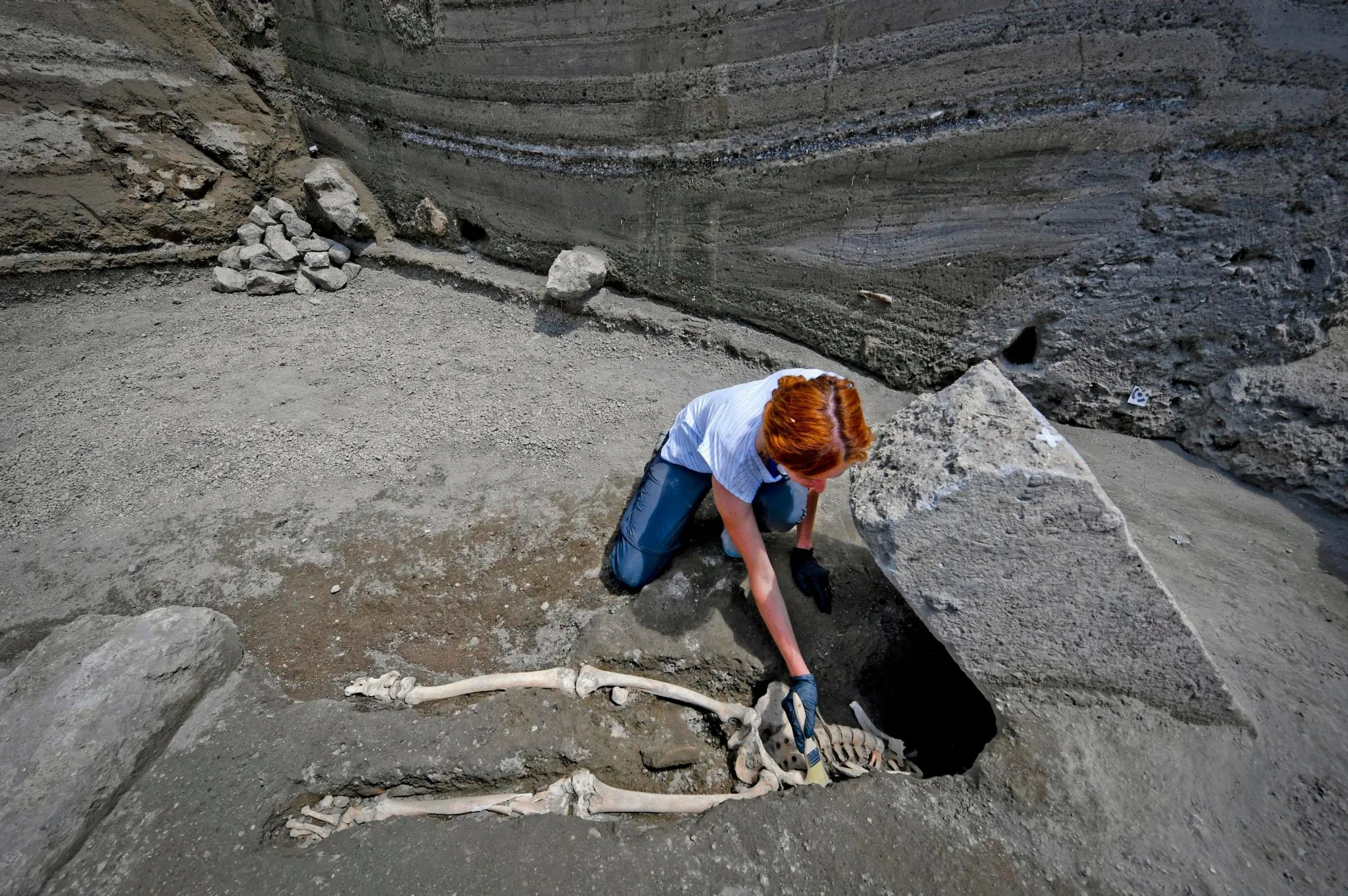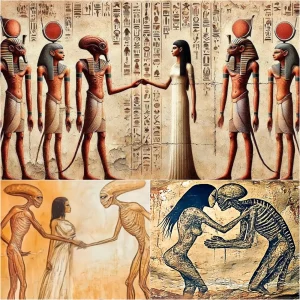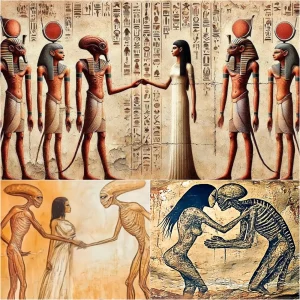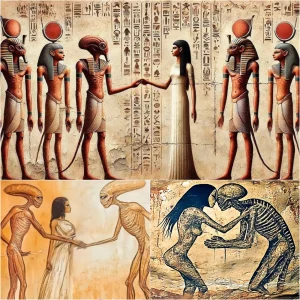Archaeologists working at the Pompeii archaeological site in Italy have uncovered the remains of a man who perished during the eruption of Mount Vesuvius in A.D. 79. The skeleton, believed to be of a man in his 30s, tells a tragic story of survival and sudden demise.
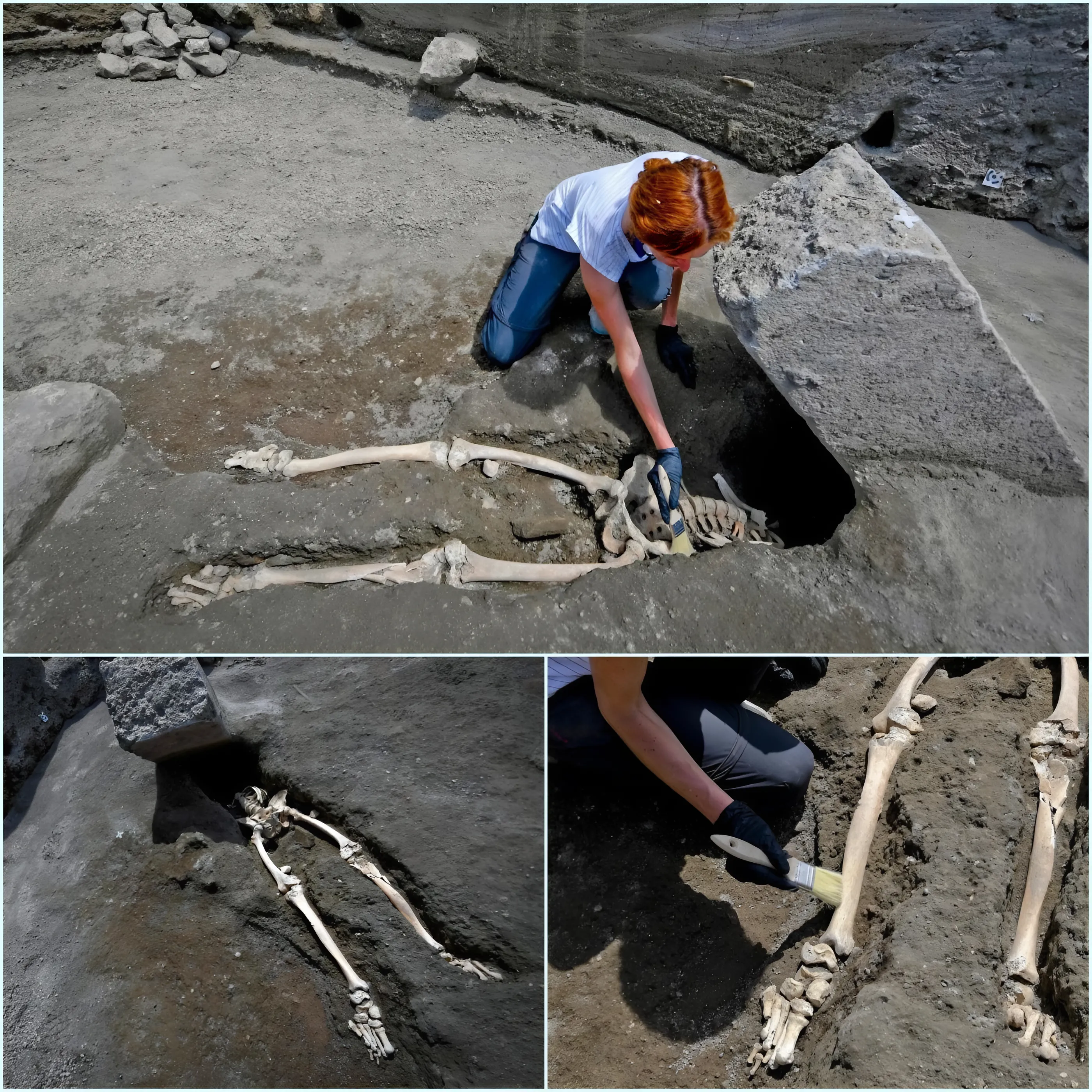
Initial assessments suggest that the man survived the initial eruption and attempted to flee the city. He sought refuge along an alley covered in volcanic debris, but a leg injury likely slowed his escape. Tragically, he was struck and killed by a large stone block, possibly a door jamb, thrown violently by the volcanic cloud. This impact crushed his upper body, and archaeologists suspect it may have decapitated him, as his head has yet to be fully identified.
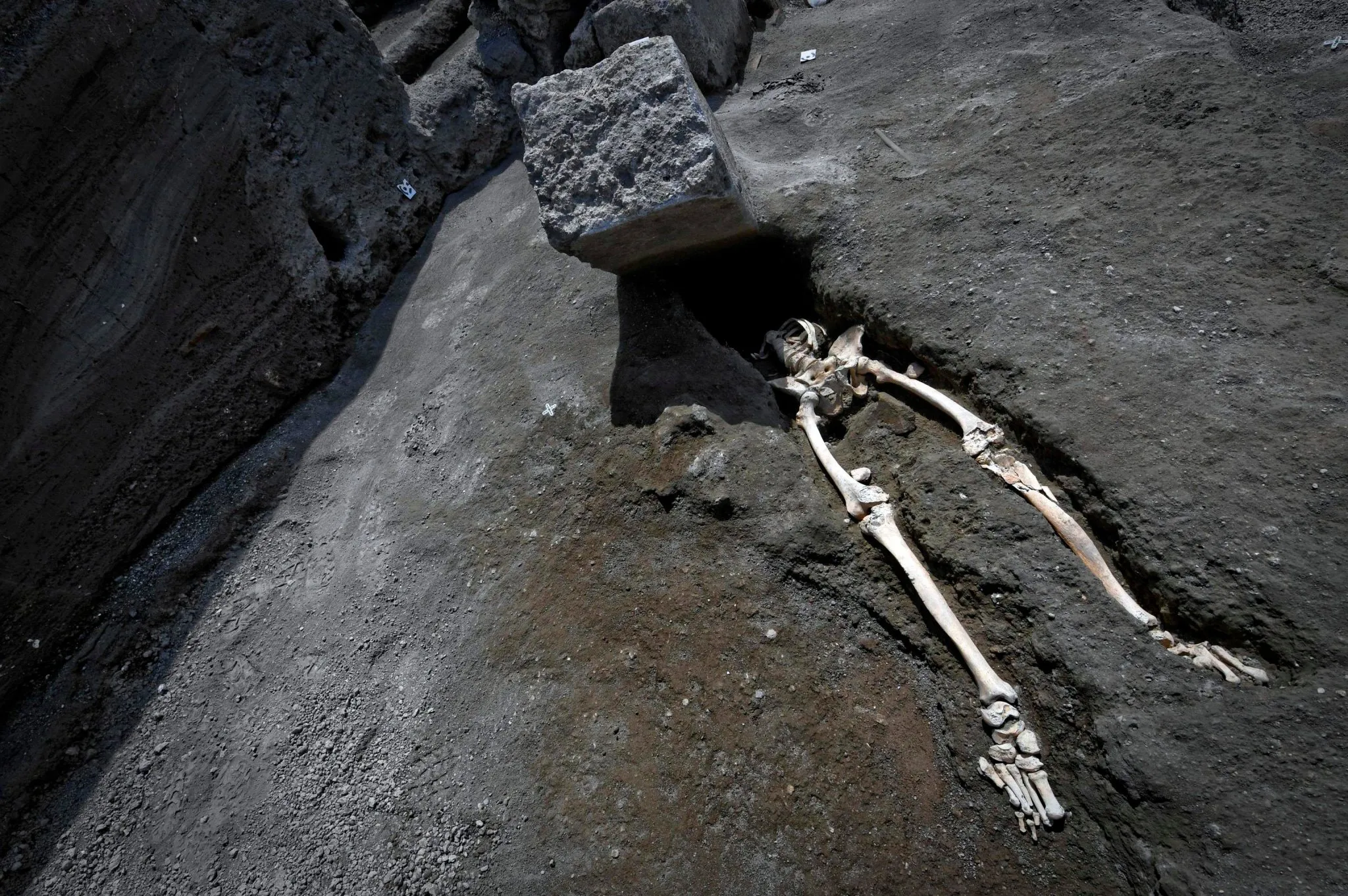
The discovery is described as “exceptional” by Massimo Osanna, the general director of the Pompeii archaeological site. It provides valuable insights into the history and civilization of the era, illustrating the catastrophic events that befell Pompeii and its inhabitants nearly 2,000 years ago. The find underscores the ongoing excavation efforts and the emotional impact of uncovering such poignant artifacts from antiquity.
